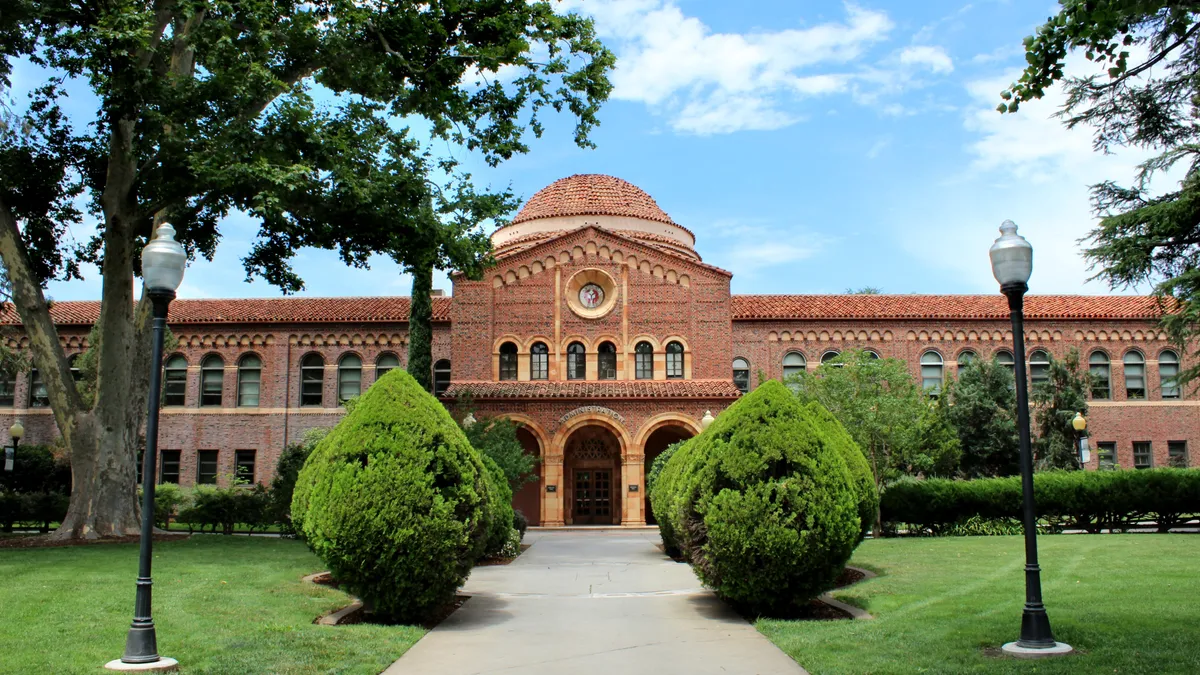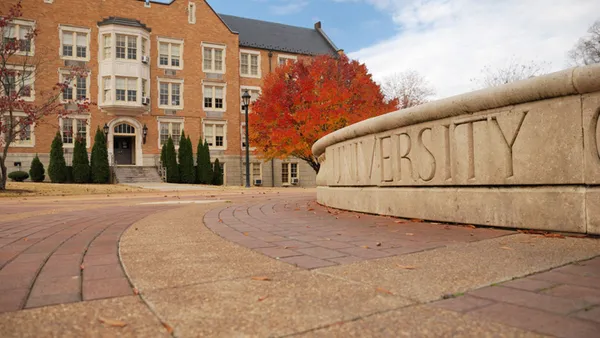Dive Brief:
-
The California State University system is freezing tuition for the 2021-22 academic year, Chancellor Joseph Castro said this week.
-
The announcement follows California Gov. Gavin Newsom's proposal to tie funding increases for the 23-campus system with keeping tuition and fees flat.
-
Cal State will join several other public institutions that aren't raising tuition during the pandemic, but higher education experts say colleges in budget-strapped states may struggle to take this approach.
Dive Insight:
Newsom's budget proposal increases base funding to Cal State by 3%, as well as injects $255 million into the system for several initiatives, including deferred maintenance and emergency student aid. The extra funding, however, comes with the expectation that the system keeps tuition and fees level and that it makes strides in student equity.
Other public colleges are hoping to follow suit. Presidents of Idaho's public, four-year colleges promised to freeze tuition for the upcoming fiscal year if the state legislature approves the governor's higher education budget. His proposal restores $15.4 million that was cut from the sector for the current fiscal year.
These types of arrangements have been becoming more common, said Tom Harnisch, vice president for government relations at the State Higher Education Executive Officers Association. Yet the health crisis has drained many states' coffers, which could make lawmakers less amenable to such deals.
"The ability to do those negotiations is certainly easier when states have more robust funding, and it's certainly more difficult when state budgets are being challenged," Harnisch said.
Still, college leaders and state legislators may be hesitant to increase tuition during the pandemic. "The optics are just not good -- no matter how you cut it -- (when) passing the price on to the consumer at a time when consumers are stretched," said Nicholas Hillman, an education professor at the University of Wisconsin-Madison.
The University of Wisconsin System's interim president said Republican lawmakers threatened to sink his budget proposal if it included a tuition increase, according to local media reports. The system has kept tuition level since 2013, even though local and state support per student fell by nearly 34% between 2000 and 2019, Wisconsin Public Radio reported.
Other public colleges are keeping tuition rates level for the 2021-22 academic year. Vermont's state college system announced in December it was freezing tuition despite its shaky financial standing.
"Our students depend on us and we will not close our budget gap on their backs," system Chancellor Sophie Zdatny said in a statement at the time.
A month later, the governor pitched a one-time funding increase of $20 million for the system in his proposed budget. A recent report commissioned by state lawmakers additionally recommended that Vermont State Colleges merge three of its institutions into one school with multiple campuses to help the system improve its budget.
Purdue University, in Indiana, also held tuition steady at its main campus for the upcoming academic year. The university has kept tuition level since 2013, a move that was followed by increased donations and enrollment, The Atlantic reported last year.
Some colleges may see tuition freezes as one way to attract students who are more price-sensitive, higher ed experts said. Regional comprehensive universities, some of which have seen steep enrollment declines, may also try to expand the geographic area in which they recruit and improve their campus life offerings, such as athletics and student clubs.
Freezing tuition "could be a page in the playbook," said Gabriel Serna, an education professor at Michigan State University. "But I don't think it's going to be a primary strategy."















